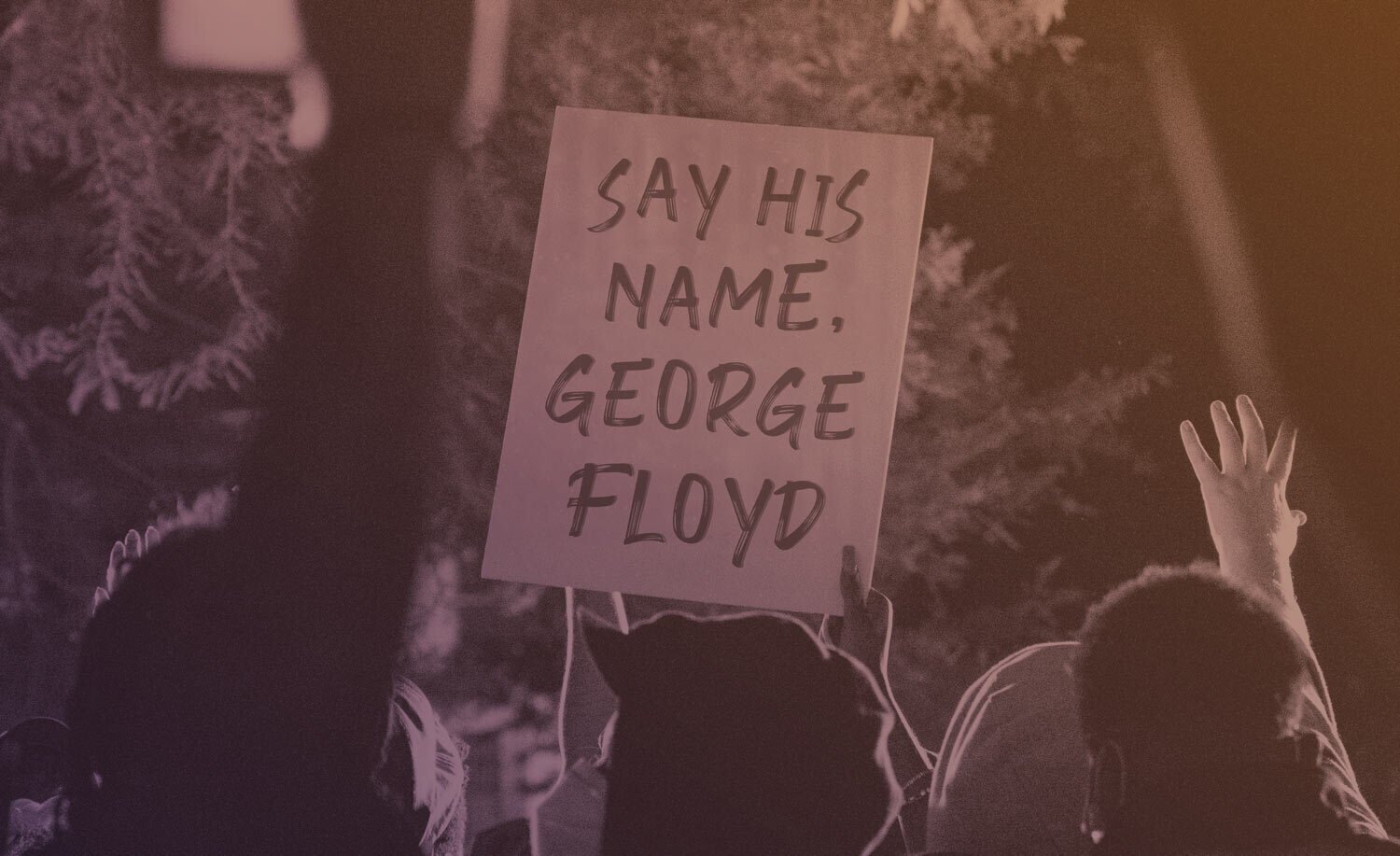Written By Anu Gupta
What's on Trial with Derek Chauvin
An opportunity to undo racial injustice in America

America once again is gripped under the spell of a racially charged criminal trial: the trial of Derek Chauvin, who murdered George Floyd in broad daylight, a crime millions of us witnessed and remain haunted by to this day. Spectators globally are questioning whether our justice system is capable of delivering justice — especially when the defendant is a white law enforcement officer, and the victim, a Black man.
At a time of rising hate experienced by Black, Asian, and other people of color, there is so much at stake with this trial. From the trial of the murderers of Emmett Till in 1955 to Vincent Chin in 1982, to the Central Park Five and Rodney King in 1990s, to the recent trials for the deaths of numerous Black Americans like Sandra Bland, Trayvon Martin, and Eric Garner — all of which immunized and protected the white perpetrators and assailants from culpability — the outcome of this trial will determine whether our justice system can hold persons in the dominant caste — white people — accountable for the cruelty, trauma, and violence they perpetrate against people of color.
This case, like all the ones that preceded it, follows the same playbook. Character assassinations intentionally dehumanize the Black or non-white victim in the eyes of the jury, while offering the benefit of the doubt to the white perpetrator. This is the working of any caste system that underplays, protects, and even glorifies the acts of people in the dominant caste regardless of how unethical, unjust, or brutal those acts may be. A cursory glance at our history of violence, dehumanization, xenophobia, and segregation towards anyone deemed non-white — a history that continues to this day — and the persistent protection of white perpetrators from responsibility and accountability reveals the inner workings of how this caste system is maintained.
With public pressure seething from all sides, there are only two outcomes ahead. If historical precedent holds true, Derek Chauvin will be found not guilty. If it doesn’t, he will be found guilty. A not-guilty verdict — regardless of the heartbreaking eyewitness testimonies — is most likely, and will demonstrate the rigidity of this racial caste system. In the most optimistic scenario, following the playbook, the Minneapolis Police Department will negotiate a settlement with Mr. Floyd’s family for a lump sum that comes out of the taxpayers’ pockets. The outcome: the public pays for the crimes of the white perpetrator while he runs free. This would continue the vicious cycle of entitlement and superiority in the hearts and minds of millions of people who identify with whiteness, while maintaining the human hierarchy of misery and suffering for millions of us branded as unworthy merely because of our color and ancestry. This is what scholars and activists continue to name as the undercurrent of white supremacy.
What’s more challenging, however, is an unprecedented guilty verdict. Such an outcome would be an anomaly — and should not be mistaken for the ability of our justice system to reform itself from within. In 2010, I sat in a sentencing court bearing witness to 14-year-olds being sentenced to prison for three years at a time for petty infractions like trespassing and breaking cell phones. Each and every one of these high school kids was Black. The cruelty and disposability with which our justice system treats people of color cannot be forgiven by the singular act of this same system potentially delivering a morally and ethically just outcome. Just as an abuser sporadically offers remorse to protect themselves, this act will be used by those in the dominant caste to excuse themselves from tackling widespread racial disparities that maintain the racial caste system.
This brings me to my point. Regardless of the outcome of this trial, we need to remember the bigger challenge at stake: the hearts and minds of millions of people like Derek Chauvin. These are our police officers, prosecutors, defense attorneys, judges, probation officers, and prison guards. How are these human beings able to act as they do? What is needed for us as a nation and a global community to hold these people accountable? Or better yet, incentivize them to behave more compassionately and lovingly towards their fellow humans?
Audre Lorde famously said,
“The master's tools will never dismantle the master's house. They may allow us temporarily to beat him at his own game, but they will never enable us to bring about genuine change. And this fact is only threatening to those [people] who still define the master's house as their only source of support.”
Per Lorde’s prophetic words, we need genuine transformative change. And this requires us to imagine new possibilities for our collective future together. I believe that such possibilities will result only from shifts that take place within the hearts and minds of those of us who are in power — who have decision-making authority or influence to impact the lives of millions. This is our work — the work of breaking racial bias.
